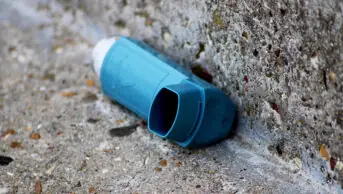
Shutterstock.com
The Royal Pharmaceutical Society (RPS) in Scotland has taken part in a session to produce the final version of a strategy to support “blue-green” prescribing in the country.
The project, funded by the Scottish government, will produce Scotland’s first blue-green prescribing programme — a sustainable approach to reducing pharmaceutical pollution by using nature-based health interventions and environmentally-informed prescribing of medicines.
The project is being run by Glasgow Caledonian University (GCU), with support from NHS Highland, the Scottish Environment Protection Agency and NatureScot, to “co-create a strategy to make more sustainable prescribing decisions”.
Julze Alejandre, who is leading the blue-green prescribing research at GCU’s Water Research Group, said: “Medicines are widely used in healthcare and are an important element of healthcare service delivery but they have negative effects on the climate and the environment.
“They also contribute to antimicrobial resistance, which is one of the major global health problems of the 21st century.
“With blue-green prescribing, people who have common mental health conditions, such as anxiety or depression, could be prescribed and have opportunities to access community-based blue-space activities, such as kayaking, swimming or even surfing through social prescribing programmes. If needed, they could also be prescribed medications or antidepressants that are less environmentally harmful but are still clinically safe and effective.”
RPS Scotland was one of the signatories to a joint declaration from Scottish healthcare professional bodies on reducing the environmental impact of prescribing in March 2022, which vowed to “educate and influence our professions, the public and policy makers about how to make medicines use more environmentally sustainable”, as well as “encourage and promote the increasing use of green social prescribing initiatives”.
Alejandre said that, following the meeting of interested parties to discuss the final version of the strategy, its production was now “in the development stage”, and he added that its implementation in Scotland would “require changes in the prescribing practices of healthcare providers”.
“This means ensuring that blue-space activities and other social prescribing activities are accessible, especially to population groups who need it the most,” he said.
“It also means developing new tools, systems, and guidelines that integrate environmental considerations on how we select and prescribe antidepressants and other pharmaceuticals.
“Ultimately, it requires collaborating with other stakeholders from the environment sector and third sector organisations who are capable of delivering other aspects of the programme, such as monitoring the quality of water environments and providing blue-space activities in communities.”


